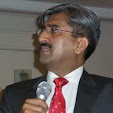It was a unanimous agreement among participants of the
annual review of the Expanded Programme of Immunization (EPI), Khyber
Pakhtunkhwa (KP) Province, to invest in routine immunization and that
investment in routine immunization will help not only put Pakistan on the right
track for achieving the Millennium Development Goal 4 but will also ensure eradication
of polio on sustainable basis. The review was held in Islamabad on March 22-24,
2013.
Dr Janbaz Afridi, Deputy Director EPI, highlighted the
issues faced by the programme in KP including complicated security situation, difficult
terrain, burden of Afghan refugees since 1979 and Internally Displaced Persons
(IDPs) since 5 years, absence of a uniform and sustained quality of coverage in critical districts, reporting and
data management problems, weak technical capacity at district level and late
compliance from some of the districts, limited number of female EPI technicians
and no legislation concerning immunization to ensure 100% coverage of the
target population.
While discussing the way forward it was agreed that
the World Immunization Week to be celebrated in the last week of April 2013
with the theme “Stop Measles Now” shall be used as an opportunity to strengthen
routine immunization in the province. Furthermore, service structure of staff
involved in routine immunization, training of EPI staff in vaccine management,
data management, communication and M&E, involvement of paramedics in
routine immunization, evaluation of Lady Health Workers involvement in routine
immunization, involvement of private sector and CSOs in EPI and legislation to
ensure 100% coverage of target population were some of the areas require to be
focused for greater immunization coverage and strengthening of the routine
immunization system in the province.
A brief introduction of the EVERY ONE campaign was
presented with its purpose and strategic objectives with a focus on
immunization. It was highlighted that not enough children in Pakistan receive
childhood vaccinations and children in rural areas are 1.4 times less likely to
be immunized than children in urban areas. Highlighting the importance of
immunization among the masses it was shared that 20% of the people in Pakistan
have no knowledge about immunization and 14% think it’s unnecessary. It was emphasized
that parental attitudes & knowledge and the quality of communication and
outreach strategies directly affects the parental knowledge & attitudes –
many parents of unimmunised children lack information about routine
immunisation programme.
The EVERY ONE Campaign demanded that the provincial
government should allocate specific resources to scale up routine immunisation
targeting uncovered areas and children from poorest wealth quintiles. For this
purpose, a policy should be adopted to train and expand the scope of work of
LHWs to administer routine immunisation. Similarly, for KP to progress towards
achieving universal standard for number of vaccinators (one vaccinator per
5,000 people) it is imperative to introduce a policy and make budgetary
allocation. Furthermore, donors’ commitment was requested for responding to the
needs of the province for universal coverage of routine and new vaccines.
It was discussed during the review that specific
existing initiatives can be used to strengthen routine immunisation such as investments in
LHWs and vaccinators, specific initiatives to reach out to every union council
of the district as currently 110 of 1040 union councils of the province have no
fix EPI Centre for immunization. It was also an undisputed agreement that there
is a need for widespread awareness among the communities and their empowerment
to demand services and hold the EPI accountable.
Dr Roohullah
representing the Director General of Health Services reassured provincial
government’s commitment for strengthening the routine immunization system in
the province. He further committed that all issues raised in the review
will be seriously considered
and addressed.
It was agreed that such reviews
should be held regularly both at the provincial and district levels to be able
to identify and remove weaknesses and strengthen the routine immunization
system in the province including in the poor performing and hard to reach union
councils and districts. Based on the findings of the review, the Deputy
Director EPI and Provincial Coordinator of LHW Programme agreed to review the
Terms of Reference of the LHWs and formally include responsibilities related to
EPI as they are now permanent government servants. It was also agreed that
joint advocacy efforts should be made by the civil society, donors and UN
Agencies for legislation and increased budgetary allocation for immunization in
the province.
